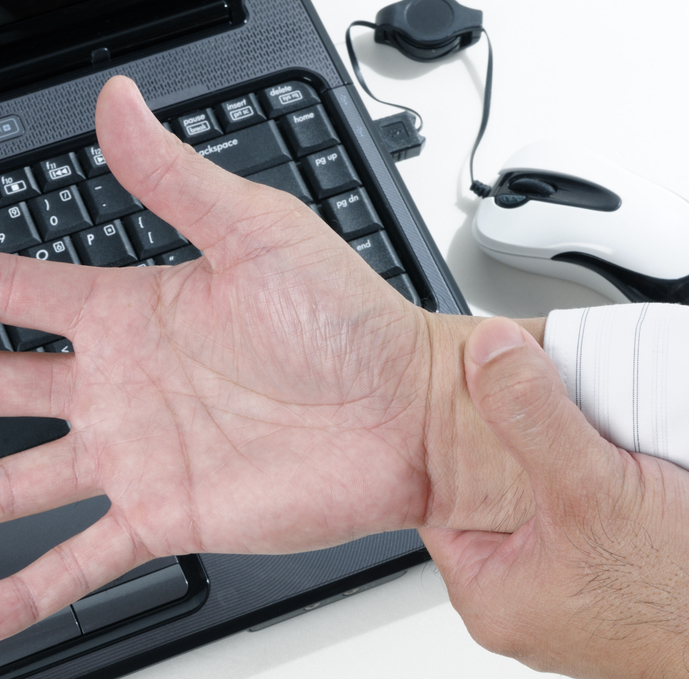
Carpal Tunnel Acupuncture Stands Up to Traditional Treatments
admin, December 5, 2014
Carpal tunnel syndrome occurs when nerves on the wrist area are compressed and symptoms like tingling and numbness develop. Without treatment, carpal tunnel syndrome can lead to a chronic, dull ache in the wrist, fingers, and/or hand that makes it difficult to deal with common daily activities – from cooking to writing to typing on your computer.
Although there’s no specific cause behind the development of carpal tunnel syndrome, certain people are more predisposed to it. In some cases, people with rheumatoid arthritis can develop carpal tunnel syndrome as a side effect of their problem.
While the most common current treatment for CTS is a combination of corticosteroid injections directly in the affected area and splinting or physical therapy, carpal tunnel acupuncture treatment is can be a valid option for a number of reasons.
What the Experts Say
There have been numerous studies done on the effectiveness of acupuncture to treat CTS. A recent one, published in the Journal of Research in Medical Sciences, compared the effectiveness of acupuncture against night splinting, sham acupuncture, and the use of vitamins B1 and B6 to reduce the symptoms of mild CTS. The results? Patients who received acupuncture experienced a reduction in symptoms and felt better after just a few sessions.
Another study published in the Journal of the Medical Association of Thailand compared electro-acupuncture against night splinting to reduce the symptoms of CTS. After five weeks, the patients receiving carpal tunnel acupuncture and the ones using a night splinter experienced similar results in terms of overall comfort and reduction of symptoms. However, the patients using electro-acupuncture reported a much more significant improvement in terms of pain reduction.
Finally, a study published in The Clinical Journal of Pain compared the use of 20 mg of prednisone (an anti-inflammatory) daily to eight sessions of electro-acupuncture administered twice a week for four weeks. At the end of the study, both groups reported similar levels of improvement in their levels of pain, weakness, night awakening and numbness. According to the researchers leading the study, the use of electro-acupuncture is at least as effective as oral prescription medication to treat CTS with fewer potential side effects.
Other Reasons Acupuncture Might Help
According to the British Acupuncture Council, carpal tunnel acupuncture can help with pain by stimulating the release of neurochemicals that improve both emotional and physical well-being. This in turn helps control pain and relaxes nerves and muscles. In people with CTS, this can lead to a reduction in stress and sensitivity, helping ease general symptoms of discomfort.
In addition, studies have shown that acupuncture also helps condition the brain to stop processing sensory nerve input. This means that the pain and discomfort you normally experience from carpal tunnel syndrome are greatly reduced because the brain processes those signals differently. The result? A much more comfortable experience when using your wrists, as well as an improvement in weakness and burning sensations in the area.
Finally, experts believe acupuncture provides additional benefits of stress reduction, which has a significant impact in the way people experience pain. As stress levels are reduced, so are the secondary effects stress has on the body. For example, people with lower levels of stress are able to handle discomfort and pain better, so acupuncture could also help people suffering from CTS indirectly.



0 Comments on “Carpal Tunnel Acupuncture Stands Up to Traditional Treatments”